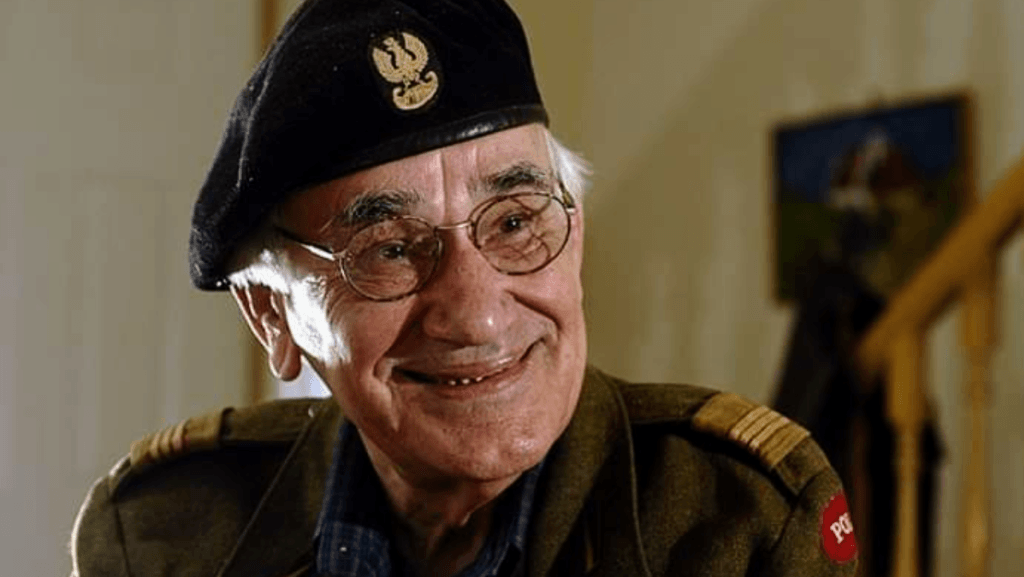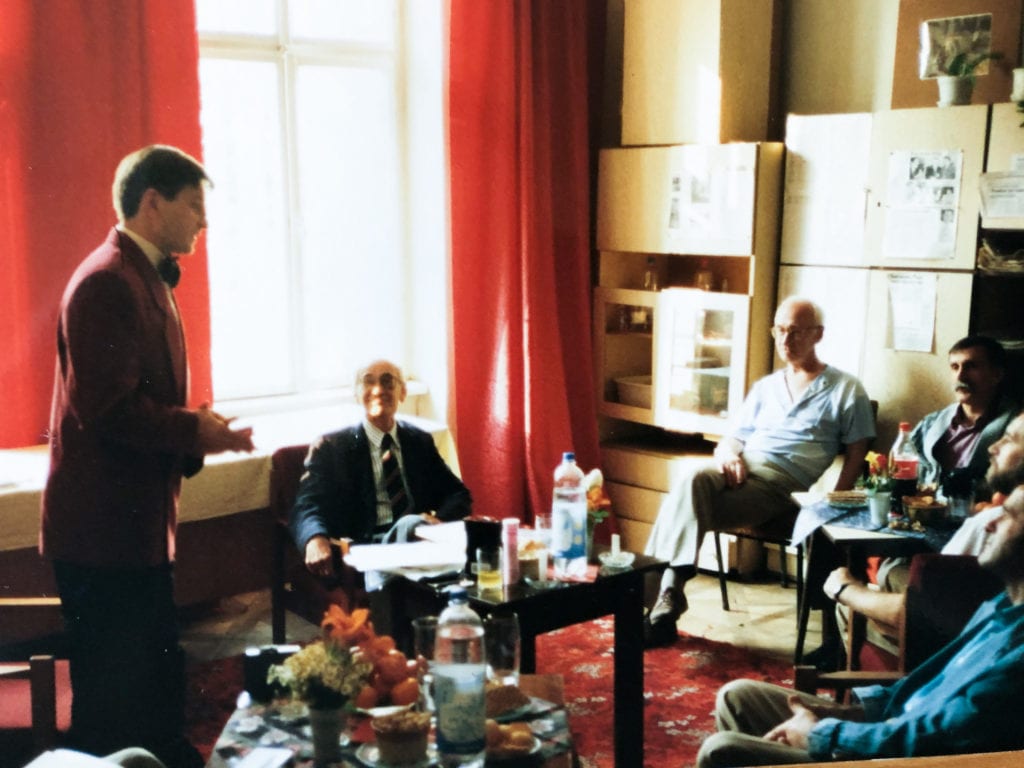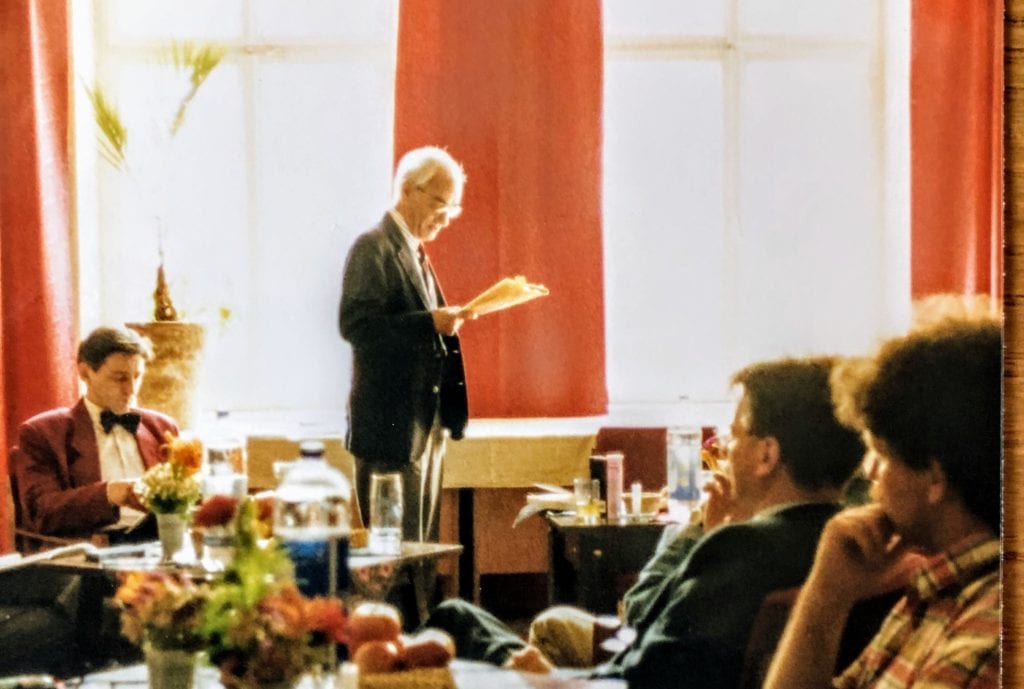More than 76 years have passed since the Holocaust and the German terror in most European countries, yet its history continues to be studied, debated, and disputed. One of the more sensitive issues is whether non-Jews did all they could to help Jews during World War II. In his book, Jarosław Piekałkiewicz examines this question in detail in the context of its relation to Poland, the country that experienced the cruelest German occupation. The author manages to bring together - in a way that has not been done before - all the factors that influenced Poles' ability to save Jews. In so doing, he documents all the efforts made to save them, despite the enormous dangers," writes Frederic J. Fleron Jr., PhD, Professor Emeritus, Department of Political Science, University at Buffalo, College of Arts and Sciences, in reviewing Professor Jaroslaw Piekalkiewicz's "Dancing with Death."

commanded by General Anders.
He is 93 years old and lives in Lowrence, Kansas
"Dance with Death" is a full analysis of the efforts of Polish Christians to help Jews living on Polish soil before the extermination during the Holocaust. Jaroslaw Piekalkiewicz begins with a brief history of Jews in Poland, allowing readers to understand why as many as one third of the world's Jews lived in Poland before World War II and introducing the traditions of their rich and diverse culture. culture. After tracing the dark clouds of fascism and anti-Semitism, accumulated in Poland and Europe before the war, the author presents detailed describes in detail the German occupation, the structure and activities of the Polish underground. He shows the enormity of the hardships and sacrifices that Poles from different social and social groups to save the Jewish nation from the Holocaust. Piekałkiewicz is not afraid to delve into the details of the dark side of the German occupation: fear, jealousy, greed, demoralization, collaboration with the Germans, and handing over Jews. They were protected from the anti-Semitic hell by Poles, members of the resistance movement - and even their personal enemies.
This book is filled with the author's vivid personal testimony of struggle and survival in occupied Poland. It provides readers with the basic information to understand Polish-Jewish relations during World War II, while being probably the last such document-testimony of a former resistance activist to be published: Piekalkiewicz joined the Polish Underground activists as a teenager, along with other family members. This blend of academic rigor and the author's personal experience allows readers to see a far truer picture than is usually encountered of attempts to survive under German occupation and during the Holocaust.


The figure of Jaroslaw Piekalkiewicz does not appear here by accident. His family comes from Grodno, and his uncle, Prof. Jan Piekałkiewicz, a prominent political activist, was the Delegate of the Polish Government at Home during World War II, murdered by the Germans in 1943. Jarosław himself, as a soldier of the Home Army, fought in the Warsaw Uprising. After the POW captivity he emigrated to the USA. He was a professor at Kansas State University, holding the title of Distinguished Lecturer in Western Civilization. He authored and co-authored many articles and books on totalitarian ideology, including Politics of Ideocracy. He also belonged to a group of regulars of attic meetings at Marek Kuchciński's place in Przemyśl. He appeared among thinkers, politicians and artists together with his wife Mojra from Amnesty International. In recalling the Attic, he makes a comparison that is perhaps too strong, but one that says a lot about that place and time: "The Attic had more significance than it appears at first glance. The atmosphere of these meetings reminded me of my gatherings in the Home Army. In the attic, as in the Home Army, we felt free. Of course during the war we risked much more, because of torture and death, but for us, as for the members of the Attic, "Poland is not dead yet, as long as we are alive". The members of the Attic risked harassment from the authorities; communists, and maybe even arrest, and certainly difficulties in their careers. Like us in the Home Army, they were a minority, because the majority of Poles thought it was necessary to live."
We invite you to read, and Polish publishers to translate. Worth
mo

- Paperback: 320 pages
- Publisher: Hamilton Books (November 15, 2019)
- Language: English
- ISBN-10: 0761871667
- ISBN-13: 978-0761871668


